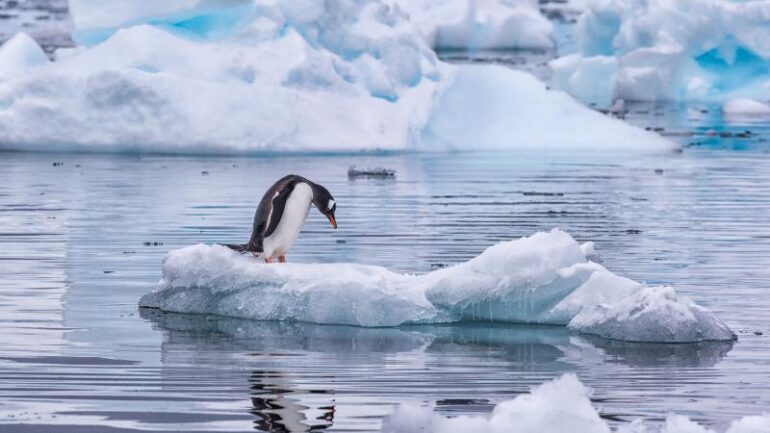We have modelled the ice melting in Antarctica for decades, but new research suggests it’s melting five times faster than we previously thought.
The biggest concern is that more melting ice means higher sea level rise, but that’s far from the only thing we should be worried about.
Tune into the full episode of Science Explained with host, Dr Sophie Calabretto to hear the full recap of this month’s discoveries.
On today’s The Science Briefing episode, Dr Sophie Calabretto talks to Cosmos Magazine journalist Matthew Ward Agius about what is happening with the Antarctic and putting a plug in sea level rise before it gets worse.
Agius said there were 50 satellite surveys of the Antarctic ice sheets and the Greenland ice sheets compiled by climate scientists worldwide.
“They showed that there’s been a five-fold increase in ice melt since the 1990s and that seven of the worst years have occurred in the last decade,” Agius said.
He said that over 7 trillion tons of ice disappeared across Antarctica and Greenland during this time.
“The other thing we know is that the rate at which ice is melting is a direct result of human behaviour,” he added.
Agius said that humans pumped more and more greenhouse gases into the atmosphere, which led to increased global temperatures.
Research published on Nature, a reputable scientific journal by Korean, Australian and American scientists in February this year, urged the severe consequences brought by rising sea levels.
“If global warming is not restricted to 1.8 degrees Celsius, and we are probably at this point to either meet or exceed that, then polar ice sheets alone will see sea levels rise around 1.4 metres by the year 2150.”
Introducing The Science Briefing: a podcast about the science of everything and your new go-to podcast for your snapshot of science news. Hosted by Dr Sophie Calabretto and featuring journalists from Cosmos Magazine.
